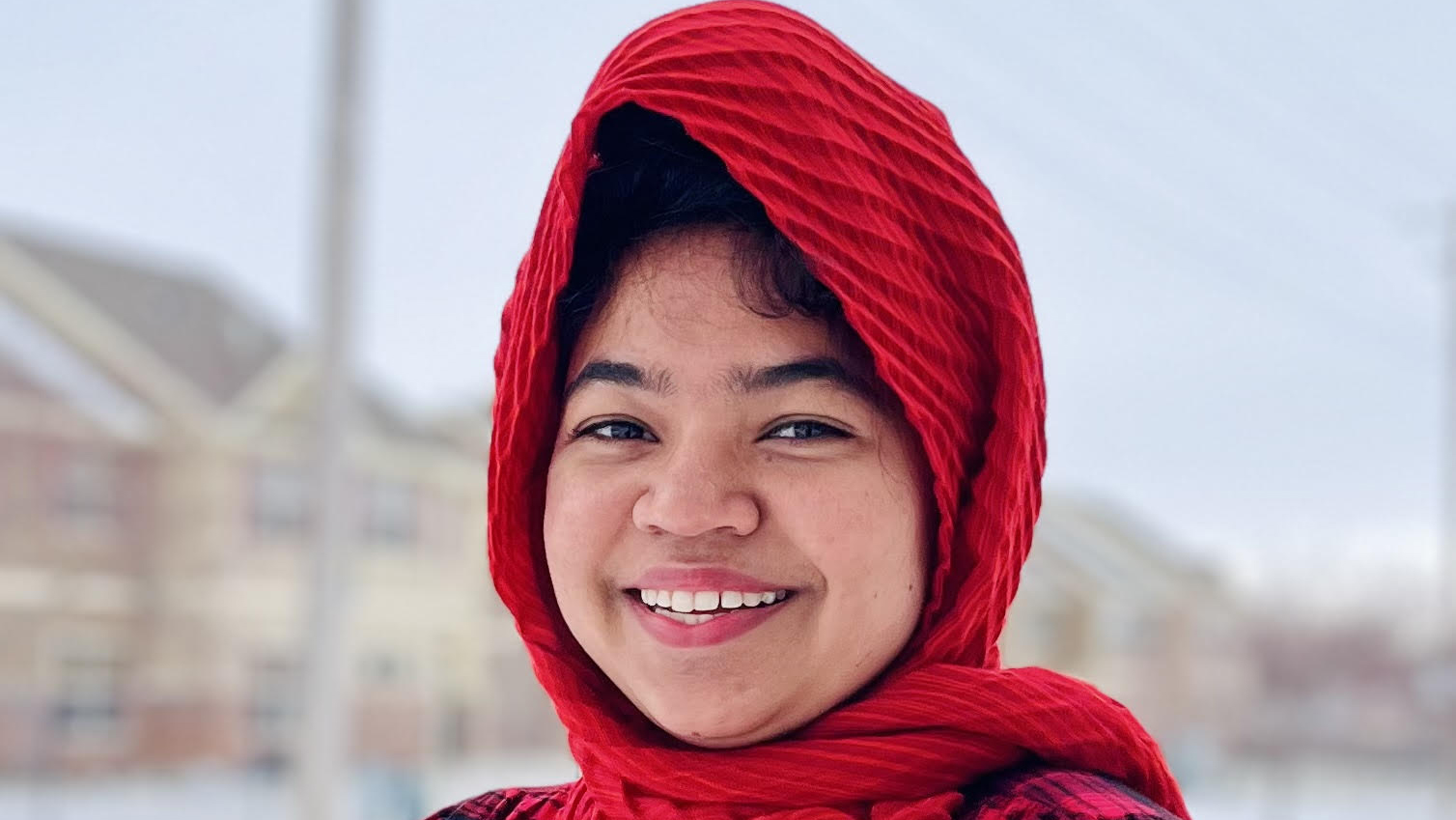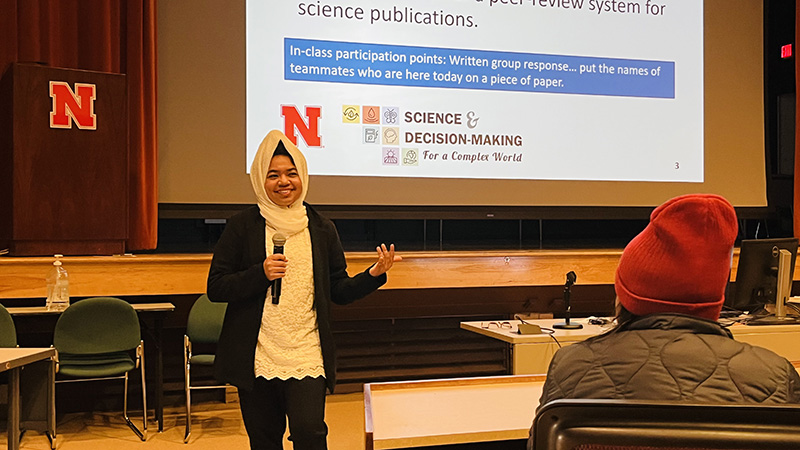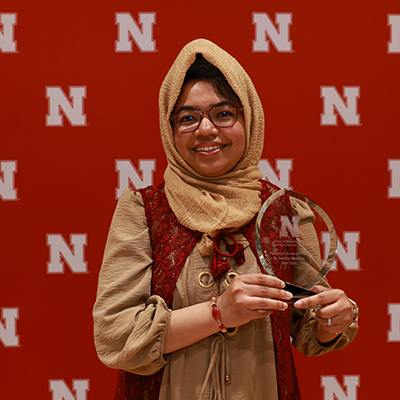Posted: 8/7/2025
Tabassum wins 2025 Postdoctoral Excellence Award in SNR

By Ronica Stromberg
Sumaiya Tabassum has had a busy first eight months as a postdoctoral researcher, teaching, writing, serving in university outreach and learning to balance work life with home life including a toddler. She recently received the 2025 Postdoctoral Excellence Award in the School of Natural Resources for her efforts.
"I was surprised, and it was totally unexpected," Tabassum said, noting she had been in her postdoctoral role less than a year when the award was announced. "It's always a great feeling to get this kind of award that celebrates your accomplishments."
This past spring, she taught the science literacy course Science and Decision-Making for a Complex World. The course is required for all undergraduates in the College of Agricultural Sciences and Natural Resources. Tabassum taught the students a seven-step process for making decisions on controversial issues like flood mitigation and developing solutions.
"My class had 130 students, and it was early, eight in the morning, in this brutal cold, so it took a lot of effort to teach this," she said. "Also, that's why I was always trying to come up with different techniques or ideas to engage students in the classroom, because it's hard for students to concentrate at this hour in the classroom, especially in an auditorium."
One idea she carried out was to start the class with a five-minute reflection in which students would write two lines, "I am grateful for [blank]" and "I am looking forward to [blank]." In another idea, she converted a lecture on the environment into a case study and an assignment based on the Antelope Valley Project in Lincoln. She also taught students how to manage conflict through role play to find a mutually agreeable solution to plastic pollution.
To get students to speak up more in class, she divided the class into 27 groups and had each group choose a leader to deliver a two- to three-minute TED-style talk. Students chose topics like hobbies, sports and movies.
"Students were very interested in those TED-style talks," Tabassum said. "They were waiting for that every class. We had those lightning talks in the middle of the class when I felt like, 'OK, now, students are feeling sleepy. It's time.’'"

She said these teaching methods worked great and she preferred them over the lecture-based instruction she received in her home country of Bangladesh. She has been writing papers about the methods this summer.
She also took part in the Leadership Accelerator Pilot Program at the university this past semester. In this program, she and a doctoral student surveyed graduate students about needs they had and then expanded the School of Natural Resources graduate school orientation to meet those needs. She said she is more motivated to do such outreach work after receiving the Postdoctoral Excellence Award.
"It boosted my confidence, and it gave me a lot of motivation to continue my work, like it matters," she said. "I am trying to get involved in all sorts of things now."
She has joined the Committee to Foster Belongingness in the School of Natural Resources as a postdoc representative. She continues her research on how to present controversial issues in the classroom in ways that will keep students engaged. Her supervisor, Jenny Dauer, said her research stands out in its ability to link learning theory and teaching practice.
"She brought her lived experiences of flooding in Bangladesh and connected that to the flooding risks facing Nebraska, challenging students to see how Nebraska faces issues that are relevant to the world," Dauer said. "Her research explores how choices to mitigate floods in Lincoln and Nebraska impact the residents and how students perceive those impacts. Sumaiya's ability to understand the complexities of perspective taking are impressive."
Tabassum has a background in disaster science and management. She said she came to realize as a master’s student that although she was interested in science, she was more interested in learning how to teach it better. She aims to get a tenure-track position as a professor in science education and continues to build her research and publications . . . with a toddler at home and the support of a full-time, stay-at-home husband.
"I have like two different lives," she said. "I have a life here in Hardin Hall, and then I have a life at home. So, it's a lot to balance all these things, but I'm learning."
